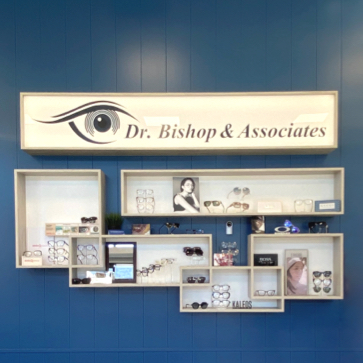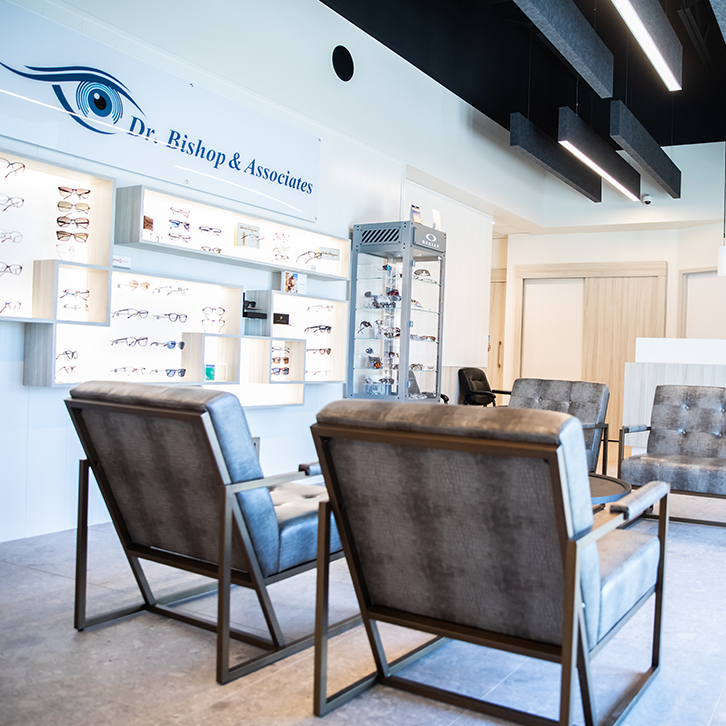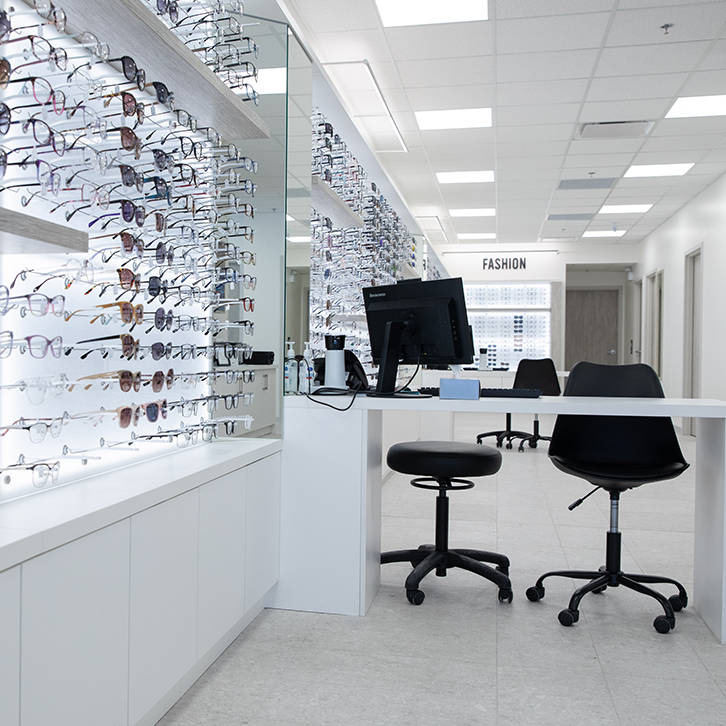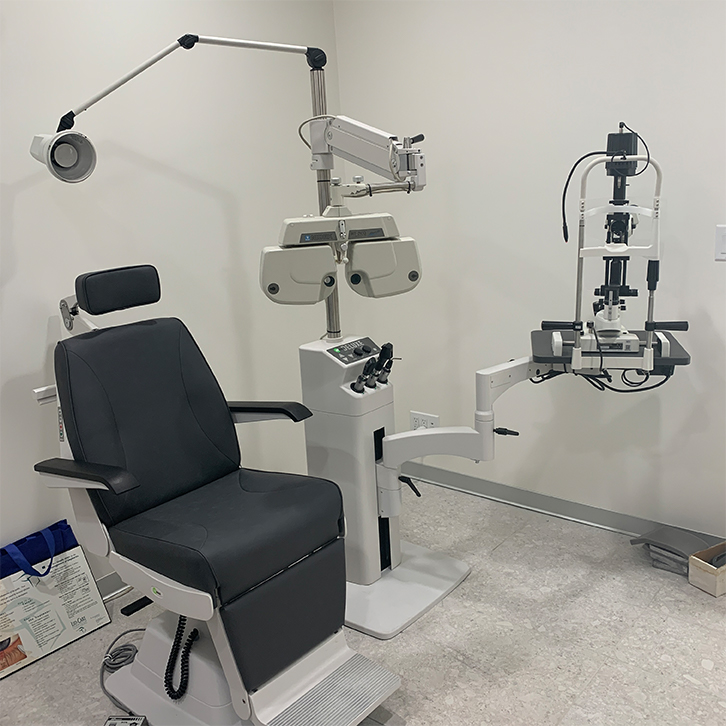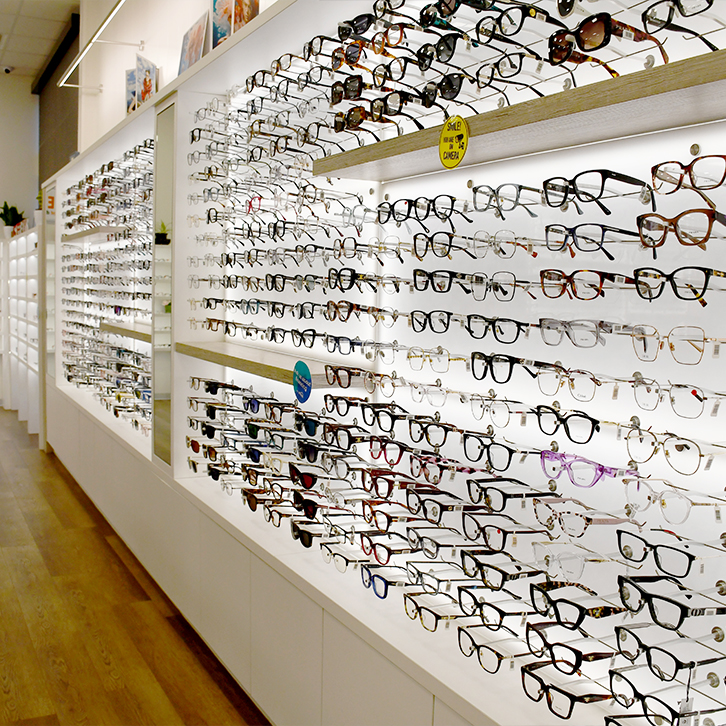Supporting Your Laser Eye Surgery Journey
If you wear glasses or contact lenses, you may have considered laser eye surgery. It’s a big decision, but not one you need to make alone.
Laser eye surgery can impact your quality of life, visual abilities, and eye health. There are many types of laser eye surgery, and not all options are a good fit for your unique eyes. Our team can support you before and after eye surgery, from recommending corrective options to guiding you through recovery.
If you have questions about corrective surgery, ask our team about our laser eye surgery co-management services.

Am I a Good Candidate for Laser Eye Surgery?
You must meet a few requirements before you can be considered for laser eye surgery. Candidates should:
- Be over the age of 18
- Have a stable prescription with no changes in the last 2–3 years
- Have healthy corneas with no history of or active corneal disease
- Have overall good eye health
However, we recommend consulting with our team before you decide on laser eye surgery. We’ll be able to answer any questions or address any concerns you may have.
How Laser Eye Surgery Can Help
Laser eye surgery can correct refractive errors like myopia, hyperopia, or astigmatism.
Blurry vision can affect daily life, making tasks like reading, driving, or enjoying outdoor activities more challenging. Laser eye surgery, including LASIK and PRK, offers a safe and effective solution to help correct these issues.
Hyperopia is a refractive error that’s also known as farsightedness. A hyperopic eye is too short in proportion to the curvature of the cornea. As a result, light focuses behind the retina, causing close-up objects to appear blurry.
Astigmatism is a refractive error that causes vision to appear blurry to some degree, regardless of distance. The cornea on an astigmatic eye is uneven, which prevents light from focusing at a single point on the retina.
More than Just LASIK
LASIK has become synonymous with laser eye surgery, but it’s only one type of corrective surgery. The most common types of laser eye surgery in Canada are LASIK and PRK. More recently introduced procedures, such as LASEK and Epi-LASIK, are variations of LASIK and PRK.
LASIK and PRK are relatively quick procedures that typically take less than 30 minutes.
Diagnosing your eye condition is a crucial first step before laser eye surgery. Your Optometrist will assess your eye health and other factors to determine if you’re a good candidate for laser eye surgery. The assessment can also help decide which type of surgery is best for your eye health.
LASIK (laser-assisted in situ keratomileusis) is an eye surgery that corrects refractive errors. It’s the more popular choice and generally offers a faster healing time.
An ophthalmologist cuts a flap in the cornea (transparent front layer of the eye for bending or refracting light). Then, a computer-guided laser reshapes the inner layers of the cornea. Finally, the flap is put back.
Although vision can fluctuate for a few months after surgery, the initial healing typically takes less than a few days. After recovery, 90% of patients achieve vision between 20/20 and 20/40.
Custom wavefront LASIK uses diagnostic mapping to deliver highly personalized vision correction. By creating a 3D blueprint of your eye’s unique imperfections, this technique can provide sharper vision, addressing even subtle distortions for increased clarity.
The procedure involves creating a thin corneal flap, reshaping the underlying tissue, and then repositioning the flap.
With minimal downtime, patients can achieve 20/20 vision without glasses and experience fewer issues like halos, night vision, glare, and contrast sensitivity.
Epi-LASIK is a laser eye surgery that removes the epithelial flap, a thin layer of tissue from the eye’s surface, without the use of alcohol. A laser is then used to reshape the underlying cornea. It is ideal for patients with thin corneas or those prone to dry eye.
Epi-LASIK can correct low hyperopia, low to moderate myopia, and astigmatism.
Photo-refractive keratotomy (PRK) was developed before LASIK. It remains a reliable choice, particularly for patients with corneas too thin for LASIK.
During the procedure, an ophthalmologist carefully removes an outer cell layer (epithelium) from the cornea. A laser is then guided to reshape the cornea, removing minimal tissue.
The initial healing time for PRK is typically longer than LASIK. Patients typically heal within a week, and then vision stabilizes over a few months.
PRK has a high success rate, with 95% of patients experiencing improved vision.
Custom wavefront photorefractive keratectomy (PRK) is safe for correcting low-to-moderate myopia and high and regular post-keratoplasty astigmatism.
PRK reshapes the cornea without creating a flap, making it ideal for patients with thin corneas or dry eye. While recovery may take slightly longer, a study found that after 6 months, over 99% of patients achieved 20/20 or better vision.
Transepithelial photorefractive keratectomy (TransPRK) is a procedure that removes the corneal epithelium and reshapes the cornea in one seamless step. This flap-free technique minimizes tissue removal and reduces the risk of complications.
TransPRK can be used to safely treat low to moderate myopic astigmatism and complications following other procedures.
Yttrium aluminum garnet (YAG) laser capsulotomy is a quick, noninvasive procedure used to treat posterior capsule opacification (PCO), or second cataracts, which can be a complication of cataract surgery. A focused laser beam creates a small opening in the cloudy capsule behind the intraocular lens to restore visual clarity.
This procedure is comfortable, takes less than 10 minutes, and requires no downtime.
A Plan for Postoperative Care
You’re changing your eyes with laser eye surgery, so your eye health deserves extra attention. You might also have questions or concerns. At Dr. Bishop & Associates, you can be assured will recieve support throughout the entire process.
Seeing your Optometrist after the initial recovery period (24–48 hours) can help detect complications. Eye surgery can be overwhelming, so it’s okay to ask us questions, even about the little things. We’re co-managing your vision and eye care together.
Even if you achieve 20/20 vision, we’ll still be here for your eye care needs. Did you know the most common post-LASIK symptom is dry eyes? If you experience symptoms, vision fluctuation, or other eye conditions, your eye care team can help you manage your eye health months and even years after surgery.
Seeing a reliable Optometrist and planning for the unexpected can benefit your eye health and peace of mind.

Supporting Your Vision After Surgery
Whether you’re ready to take the leap or simply have questions, we’re here to help. Our team is eager to discuss how laser eye surgery can benefit you. When the time is right, we’ll guide you through every step of the process.
Start your journey by consulting with our team to explore your options. Book an appointment with Dr. Bishop & Associates today!
Why Trust Us? We’re Advocates for Eye Health & Vision Needs
Dr. Bishop & Associates is committed to providing care that can make a positive difference in your life.

Dry Eye Clinic
Dealing with scratchy, red, tired eyes can be frustrating—but we’re here to help. At our dry eye clinic, we take a comprehensive approach to diagnosing and managing dry eye, focusing on your unique symptoms and lifestyle. We aim to address the root cause to achieve long-lasting relief, including innovative treatments with noninvasive IPL and radiofrequency technology.

BEAUTIFY @ Dr. Bishop’s
We want you to feel confident in your skin. Our aesthetic services are designed to help renew and replenish your skin with minimally invasive treatments and no downtime. With AlumierMD skincare and IPL, radiofrequency, and laser rejuvenation technology, we’ll work with you to create a personalized plan to address your skin concerns and reveal your natural beauty.

Myopia Management
Nearsightedness (myopia) is on the rise, and it can have long-lasting impacts on your child, from their success in the classroom to their eye health later in life. Myopia management is a personalized, proactive approach to slowing myopia progression to help support your child’s sight today and protect their long-term eye health. Your child’s vision is our top priority.

Where to find us
Willow Park Village
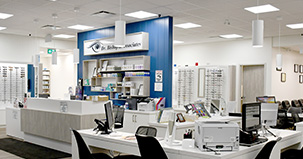
Our Address
- 575 – 10816 Macleod Trail SE
- Calgary, AB T2J 5N8
Contact Information
- Phone: (403) 974-3937
- Fax: 403-509-4859
Our Hours
Legacy Township
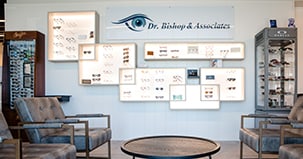
Our Address
- 230 – 200 Hartell Way SE
- Calgary, AB T2X 4S9
Contact Information
- Phone: (403) 974-3937
- Fax: 587-392-7365
Our Hours
Beacon Hill
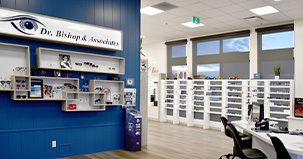
Our Address
- 615 – 11877 Sarcee Trail NW
- Calgary, AB T3R 1W5
Contact Information
- Phone: (403) 974-3937
- Fax: 403-509-4854
Our Hours
Northgate Village
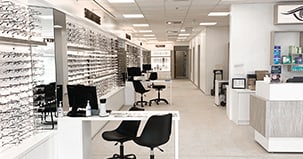
Our Address
- 103 – 495 36 St NE
- Calgary, AB T2A 6K3
Contact Information
- Phone: (403) 974-3937
- Fax: 403-509-4866
Our Hours
Our Eyewear Brands

- Ray Ban
- Tom Ford
- Zeiss
- Kate Spade
- Oakley
- Gucci
- Maui Jim
- Fossil
- Saint Laurent
- Calvin Klein
- David Beckham
- L.A.M.B.
- Fossil
- Ray Ban
- Tom Ford
- Zeiss
- Kate Spade
- Oakley
- Gucci
- Maui Jim
- Saint Laurent
- Calvin Klein
- David Beckham
- L.A.M.B.

Virtual Try-On: Effortlessly Sample Your New Look
Ready to find your perfect pair? Try on our wide range of glasses and sunglasses virtually!
Explore styles available at all our Calgary eye clinic locations.
Dr. Bishop & Associates is here to help you see the world in style.


